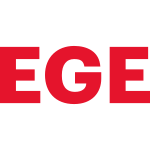Comme nous l'apprend cet article du Washington Post, l'administration Bush vient d'adopter une nouvelle stratégie de contre-renseignement. Celle-ci reflète une volonté de ne plus être passifs mais au contraire pro-actifs - euphémisme pour offensifs - face à la menace grandissante du renseignement de puissances étrangères visant les secrets militaires ou nucléaires des Etats-Unis. Mais un passage du texte concernant le domaine économique nous intéresse plus particulièrement:
V. U.S. counterintelligence will seek to ensure a level economic playing
field so that business and industry are not disadvantaged by foreign
intelligence operations.
The United States is a nation of commerce and we value the freedom of trade as
both a personal liberty and a cornerstone of national wealth. However, if adversaries can
exploit the technological accomplishments of industry and gain an unfair advantage, not
all trade inures to the Nation's good. While most foreign economic competition is open
and lawful, it is not exclusively so. Some business competitors, supported by foreign
intelligence services, employ classic intelligence methods in an attempt to gain an
advantage over American companies. The outflow of sensitive trade secrets and
proprietary information erodes our comparative economic advantage, and undermines
national security. Foreign companies that unlawfully acquire U.S. technology are able to
compete unfairly against U.S. firms, which bear heavy research and development costs
associated with innovative technology.
As our economy moves toward dependency on the benefits of information
technology and networked data systems, our economic well-being and our national
security could become vulnerable to foreign intelligence intrusion and manipulation of
our cyber systems. We must ensure that we identify, understand, and counter these
threats.
We will seek to identify foreign intelligence operations conducted against U.S.
business and industry and we will provide the appropriate threat information to enable
them to take such risk mitigation measures as they deem prudent.
En 2000 James Woolsey déclarait au journal le Monde que les Etats-Unis utilisaient le système d'écoute ECHELON dans le domaine économique pour lutter contre la corruption utilisée par les entreprises françaises. Mais ce n'était pas de l'offensif. On ne peut que s'inquiéter de l'interprétation qui va être faite de cette nouvelle stratégie dans le monde économique. Le texte de 22 pages intitulé "The National
Counterintelligence Strategy of the United States" daté de mars 2005 peut être consulté sur le site FAS.ORG.
V. U.S. counterintelligence will seek to ensure a level economic playing
field so that business and industry are not disadvantaged by foreign
intelligence operations.
The United States is a nation of commerce and we value the freedom of trade as
both a personal liberty and a cornerstone of national wealth. However, if adversaries can
exploit the technological accomplishments of industry and gain an unfair advantage, not
all trade inures to the Nation's good. While most foreign economic competition is open
and lawful, it is not exclusively so. Some business competitors, supported by foreign
intelligence services, employ classic intelligence methods in an attempt to gain an
advantage over American companies. The outflow of sensitive trade secrets and
proprietary information erodes our comparative economic advantage, and undermines
national security. Foreign companies that unlawfully acquire U.S. technology are able to
compete unfairly against U.S. firms, which bear heavy research and development costs
associated with innovative technology.
As our economy moves toward dependency on the benefits of information
technology and networked data systems, our economic well-being and our national
security could become vulnerable to foreign intelligence intrusion and manipulation of
our cyber systems. We must ensure that we identify, understand, and counter these
threats.
We will seek to identify foreign intelligence operations conducted against U.S.
business and industry and we will provide the appropriate threat information to enable
them to take such risk mitigation measures as they deem prudent.
En 2000 James Woolsey déclarait au journal le Monde que les Etats-Unis utilisaient le système d'écoute ECHELON dans le domaine économique pour lutter contre la corruption utilisée par les entreprises françaises. Mais ce n'était pas de l'offensif. On ne peut que s'inquiéter de l'interprétation qui va être faite de cette nouvelle stratégie dans le monde économique. Le texte de 22 pages intitulé "The National
Counterintelligence Strategy of the United States" daté de mars 2005 peut être consulté sur le site FAS.ORG.


